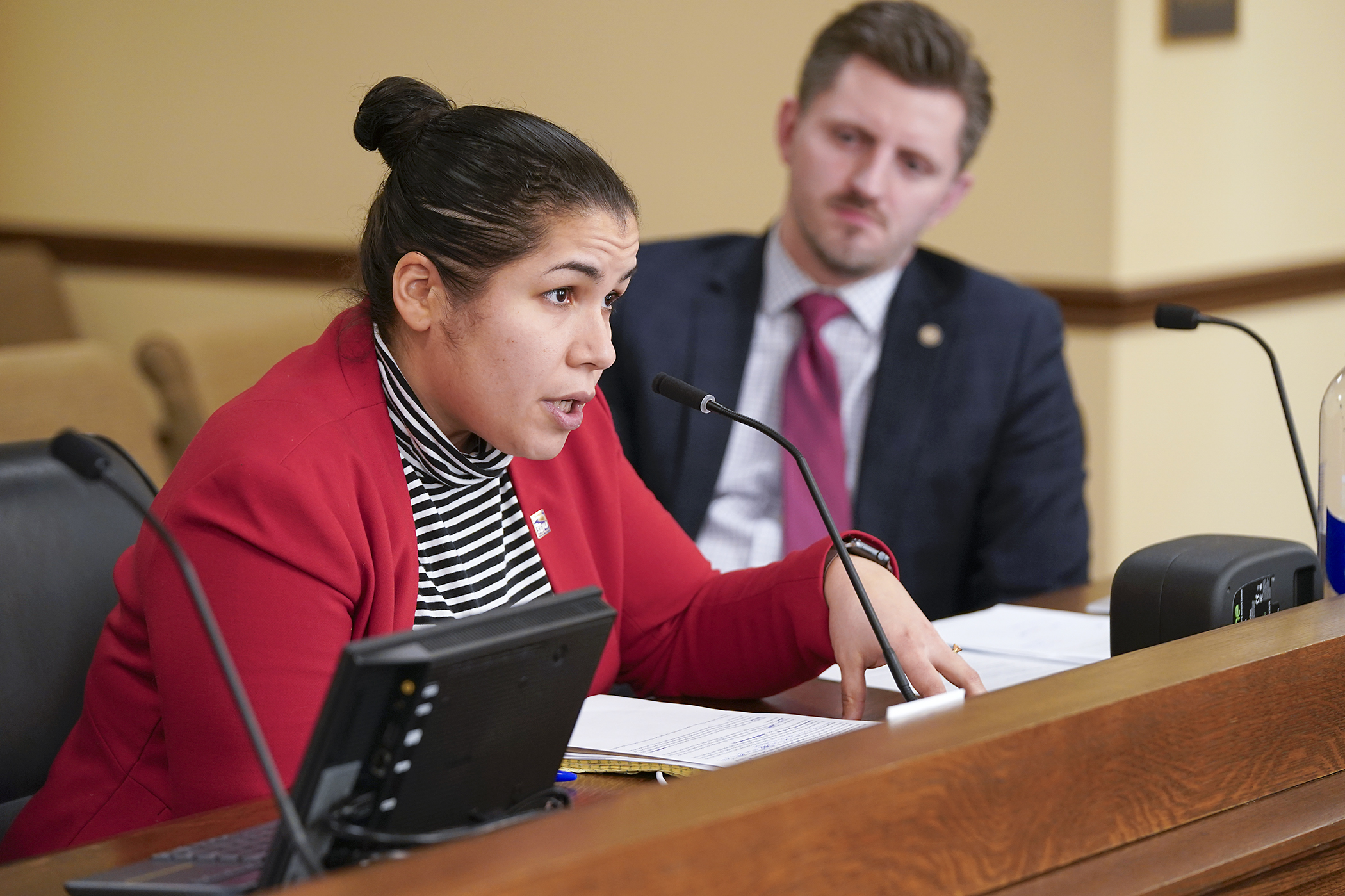House higher ed panel OKs bill to restrict state aid for undocumented immigrants

A plan to prohibit immigrants living illegally in the United States from accessing several state programs is moving forward, despite some lawmakers’ concerns there wasn’t enough time to fully discuss it.
Sponsored by Rep. Isaac Schultz (R-Elmdale Township), HF10 would restrict the ability of “undocumented noncitizens” from receiving various service, payment, grant, loan, subsidy, or other forms of financial aid or assistance funded by state tax revenue, including the North Star Promise college scholarship program and MinnesotaCare health care coverage.
The House Higher Education Finance and Policy Committee approved the bill on a 7-6 party line vote Tuesday and sent it to the House Health Finance and Policy Committee.
DFL members sought to table the bill so they could get more information, including a fiscal note that was not yet available, and have time to ask questions and raise concerns.
“I'm very concerned, not only frankly for our members’ ability to ask questions, but for the public to hear and truly understand the effect that this bill would have,” said Rep. Nathan Coulter (DFL-Bloomington).
Rep. Marion Rarick (R-Maple Lake), the committee chair, promised to bring the bill back to the committee when the fiscal note is available, and members can ask questions.
“I'm not going to table the bill because I will demand that it comes back here when the fiscal note is completed,” Rarick said. “I would prefer to have that deeper dive once this comes back, and we would have plenty of time to come up with questions and concerns.”
The North Star Promise program provides free college tuition for Minnesota residents with an annual family adjusted gross income of less than $80,000. Students can use the program to attend any public college or university in Minnesota.
HF10 would amend the program’s definition of “eligible student” so that students who qualify as Minnesota residents under the Minnesota Dream Act are not eligible for a scholarship award beginning in the fall 2025 academic term. The act provides certain immigrants living illegally in the United States the ability to access state financial aid.
“While (North Star Promise) is a relatively new program, still going through its first full academic year, we already know that over $86,000 in taxpayer dollars have gone to fund people who are here illegally,” Schultz said. “My goal through this bill, that we really take a look at the eligibility requirements for tax dollars as they are meant to benefit the people of Minnesota, and the taxpayers of Minnesota.”
Molly Leutz, policy director at LeadMN submitted a letter against the bill.
“Denying access to the North Star Promise based on immigration status is a step backward in Minnesota’s dedication to its workforce goals of increasing degree and certificate attainment …. The North Star Promise is effective in encouraging college attendance; and allowing financial aid for immigrant students is a low-cost, high-reward program.”
The bill would also prohibit residents living illegally in the United States from accessing MinnesotaCare, which provides subsidized health care coverage to low-income individuals in the state. Immigrants living illegally in the United States became eligible for the program on Jan. 1, 2025.
Related Articles
Search Session Daily
Advanced Search OptionsPriority Dailies
Speaker Emerita Melissa Hortman, husband killed in attack
By HPIS Staff House Speaker Emerita Melissa Hortman (DFL-Brooklyn Park) and her husband, Mark, were fatally shot in their home early Saturday morning.
Gov. Tim Walz announced the news dur...
House Speaker Emerita Melissa Hortman (DFL-Brooklyn Park) and her husband, Mark, were fatally shot in their home early Saturday morning.
Gov. Tim Walz announced the news dur...
Lawmakers deliver budget bills to governor's desk in one-day special session
By Mike Cook About that talk of needing all 21 hours left in a legislative day to complete a special session?
House members were more than up to the challenge Monday. Beginning at 10 a.m...
About that talk of needing all 21 hours left in a legislative day to complete a special session?
House members were more than up to the challenge Monday. Beginning at 10 a.m...